Expectations, it’s true, may ultimately be the most critical aspect to enjoyment. Being “pleasantly surprised” can only occur when one expects relatively little, while disappointment, in turn, may only manifest from presupposing something in the future will turn out well. Accordingly, when I headed down to New Orleans in 2016 for what I still consider to be the greatest live entertainment event in America, Jazzfest, my expectations were whatever is above sky high. And…things didn’t exactly all work out. In fact, on the last day in town it became a drenched, dreary shitshow. Only a truly great performance – really, an epic one – could have rescued the depths to which the trip’s final evening had sunken. Fortunately, saxophonist/bandleader/composer Kamasi Washington delivered just such a performance, astoundingly recreating much of his breakout, 172-minute tour de force 2015 album, aptly named The Epic.
It didn’t start out badly, far from it. I was back at Jazzfest for the first time in over 30 years, and I was accompanied by my musician son, Max, fulfilling a long-held dream to take in the festival together (I’d had to wait out the high school and college years during which his pesky final exam schedules were annoyingly always a conflict) – both factors significantly raising the stakes and my aforementioned expectations over what would have already been huge anyway. I’d studied the festival performance schedule – the “cubes” as attendees know it – in painstaking detail. Plotting your optimal Jazzfest stops is a serious matter. It’s not merely about the artists you want to see (and what other sets are happening at or around the same time), geography must also be taken into account. At a site as massive as the 145-acre Fairgrounds, typically populated by a stadium’s worth of 70,000-plus revelers per session, you’ve got to be able to anticipate: how long will it take to get from one stage to another (there are 12 in all); whether to prioritize the big names or the local acts (almost always the latter for me); when to plan visits to the blues and gospel tents (both musts); and at what point to slot in a break for some crawfish bread, fried oyster po-boys and a few Abita ambers (even bigger musts). And, of course, these considerations are just for the festival itself, from Noon to 7:00PM…after that you’ve still got to map out the music and moves for the rest of the night!
But trust me, I had it all well dialed in. From our Wednesday afternoon arrival, with an all-star show at NOLA Brewery featuring George Porter, Jr., Dave Malone, Anders Osborne, and many others, through Friday’s Festing, highlighted by the huge win of leaving Paul Simon mid-set (passable but dull) to catch Ms. Lauryn Hill (a buoyant revelation, and the weekend’s most unforeseen prize). We were hitting all our eclectic marks, as only the city of New Orleans and its Jazz & Heritage Festival could offer: The London Souls, Tedeschi Trucks Band, Gary Clark, Jr., Bonerama, Irvin Mayfield & the New Orleans Jazz Orchestra, John Boutte, Mississippi Mass Choir, and VIP entry to Snarky Puppy at warehouse turned funky concert venue Republic – which culminated in a bizarre encore with Harry Shearer in full This Is Spinal Tap ensemble.
Saturday was to be our coup de grace. And with a crack-of-dawn flight out of town on Sunday I had the perfect plan. After the day at the Fairgrounds, a nice dinner and some R&R, we were to see Kamasi Washington’s late show (starting at 1:00AM) at a tiny French Quarter club named One Eyed Jacks. The show wouldn’t end until 3:00, maybe 3:30 in the morning, so it was my bright idea to check out of our hotel Saturday morning and commit to the all-nighter; a potential hour or two of sleep seemed superfluous, even wasteful – I’d save a few hundred bucks, too! We left our packed bags with the bellman knowing the next time we’d see them would be on an ecstatic, post-concert whirl through the lobby on the way to the airport.
The day at the Fairgrounds started inauspiciously when our tickets inexplicably would not scan for entry and we spent an hour at a Ticketmaster booth arranging for replacements (only once inside and reaching for beer money did I realize I’d presented the prior session’s already-used tickets with the current ones resting untouched in another pocket). We recovered from the self-inflicted detour, and by around 3:00 were back in the groove, enjoying Big Chief Bo Dollis, Jr. & The Wild Magnolias on the Jazz & Heritage stage. Then, as their set neared its end, the rains came. Now, if you’ve spent any time in New Orleans you know it can rain there. Crazy deluges and flash flooding aren’t unusual. We all know the tragedies that ensued after Hurricane Katrina once the levees were breached, but I’m just talking about commonplace, everyday torrential rain. I’ve kayaked down major thoroughfares in the city in the aftermath of a couple hours of heavy downpour. You deal with it. So when this one started we calmly made our way to the blues tent, and though arriving thoroughly soaked we settled in as best we could to hear Jon Cleary & The Absolute Monster Gentlemen (they had been on my schedule anyway) until the storm passed. But it didn’t pass, it only intensified, now joined by the unwelcome duo of thunder and lightning, until somewhere around 5:00 the jarring announcement came over the public address speakers: Jazzfest had been cancelled for the day, and its Fairgrounds environs were to be immediately evacuated.
In the near 50 years of Jazzfest, despite the famously fraught weather conditions, this had never happened before. We were not prepared. Really, no one was prepared. Stunned, and immediately ruing the loss of our anticipated closing set by Stevie Wonder (with a possible side-trip for Buddy Guy), we slowly began trudging the long walk out alongside similarly downtrodden festival-goers, sloshing through water that now reached up to our shins, and in a continued driving rain. My shoes were leaden, and each step was a mud-caked slog. At last reaching the taxi line, a well-organized routine the prior nights, alas, we soon discovered a significant problem: there were no cabs. And why would there be, when the Festival day had been suddenly, unprecedentedly called off long before normal. We stood in that immobile, ill-tempered line for what seemed like days but was certainly hours, my saturated clothes plastered to my skin, disappointed, demoralized, and soon in a miserable, full-on shiver. By the time we finally made our sodden, slovenly entrance back at the hotel, where due to my brilliant plan we no longer had a room, I would’ve gladly paid the nightly rate just for a hot shower. In fact I would’ve offered double that, which I did, to no avail. “So sorry, y’all, we’re all booked up,” I was told, “Y’all know it’s Jazzfest weekend, dontcha?” Instead, we retrieved our bags and, like hobos, changed out of our swampy, sopping clothes in a cramped lobby bathroom. Still shivering and filthy as we once again made our way onto the cobblestone streets of the Quarter, we were not feeling too enthused about the remainder of our evening, nor my shortsighted, ill-fated, pretty damn foolish strategy for having organized it.
It was in roughly this downright disgusted mindset that we eventually arrived at One Eyed Jack’s to see Kamasi Washington, a man who’d only recently exploded onto the modern jazz scene with his tectonic debut album, The Epic, whose release had come just two months following his notable appearance on Kendrick Lamar’s eventual Grammy-winning To Pimp a Butterfly. We’d both been extremely anxious to see Washington live and had outsized high hopes for the show. But now? Now, in our state, our expectations had changed. To salvage the night, and by extension our lasting memory of the trip, he had to be beyond impressive but extraordinary. Monumental. You might even say, epic.
Kamasi Washington’s music is dense. It’s vibrant. It can be overwhelming. I’ve found it can sound like a big band, an orchestra, and a gospel choir; occasionally, all at the same time. There are elements of jazz masters Charles Mingus and John Coltrane, but also of classical, hip-hop, and R&B. It’s a crazy, rich stew, perhaps not unlike a piquant pot of simmering New Orleans gumbo. And this, our featured song, ‘Change of the Guard,’ is a long piece, with a lot happening. It comes at you in waves, and then in a rush. I hope you’ll take in its entirety. Washington’s turbulent saxophone solo, though – starting at 5:24 but beginning its inexplicable peaking around the 7-minute mark – represents the moment our jaws fell open, transfixed by his skronking splendor, and we were saved. He played with an intensity so dramatic we thought his sax might combust, and the roof of the club could implode. We were released from the day’s earlier mucky misadventures, ridden of our despondency, and left awestruck by extravagant virtuosity. Expectations exceeded, it was, in a word, epic.
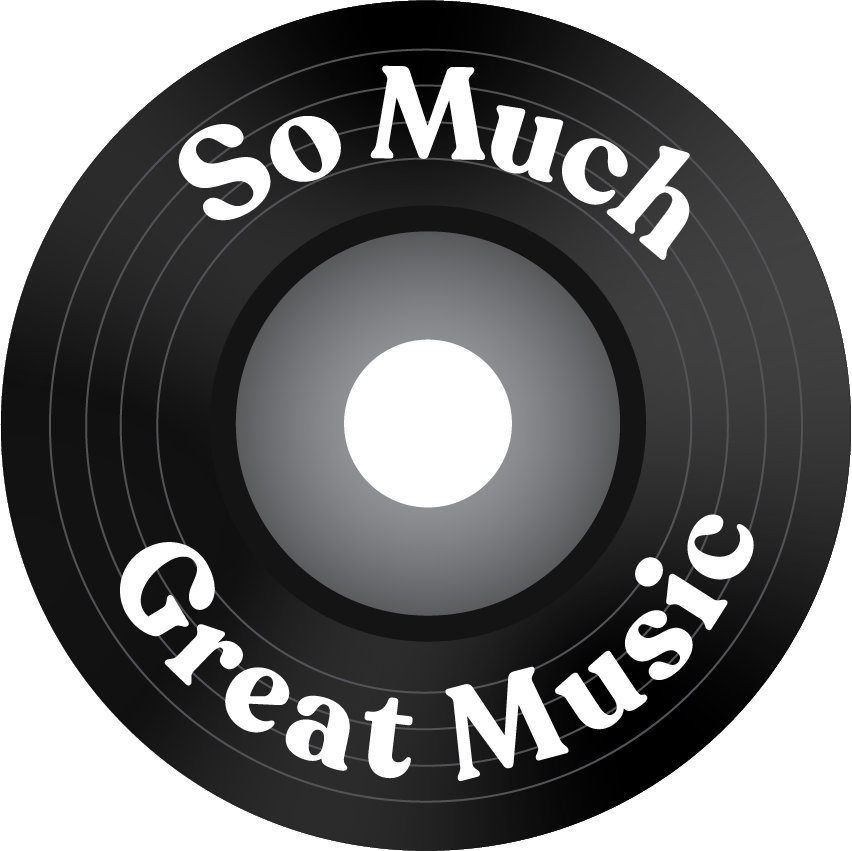
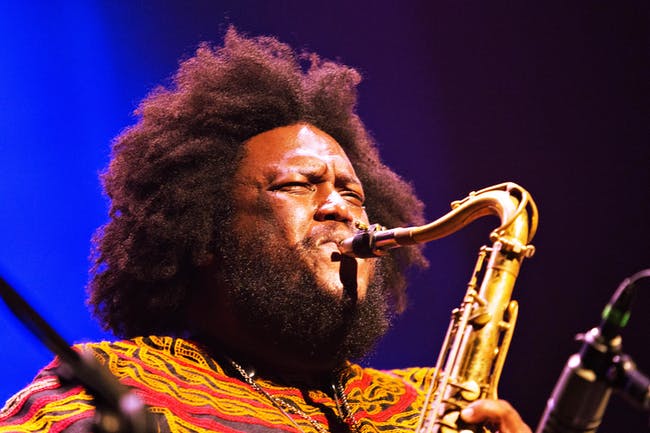
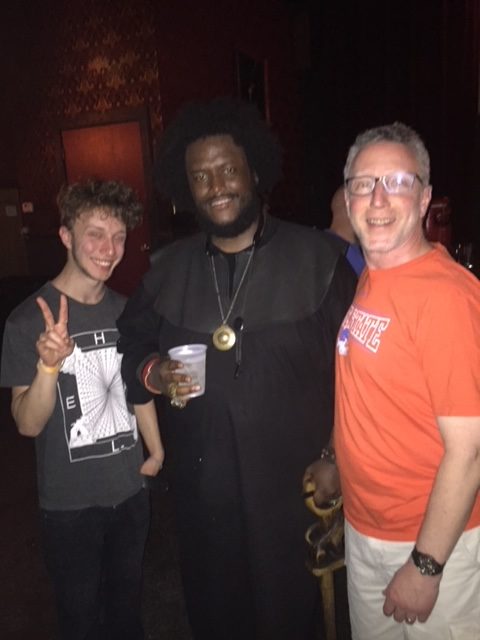


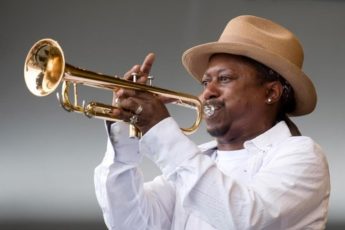
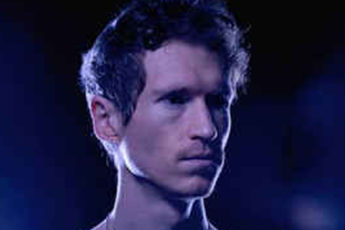
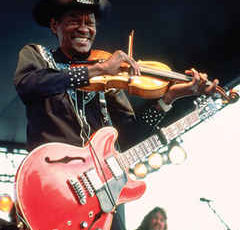
Rob MacMahon
April 24, 2021 4:27 pmBG: Great entry today. Your taste in music is much different than mine but I love the feel of your writing and the story told. Great bonding moment with your son. Keep on rockin’ in the free world, my muso friend.
RMac (Friend of Zing the Elder) 🙂